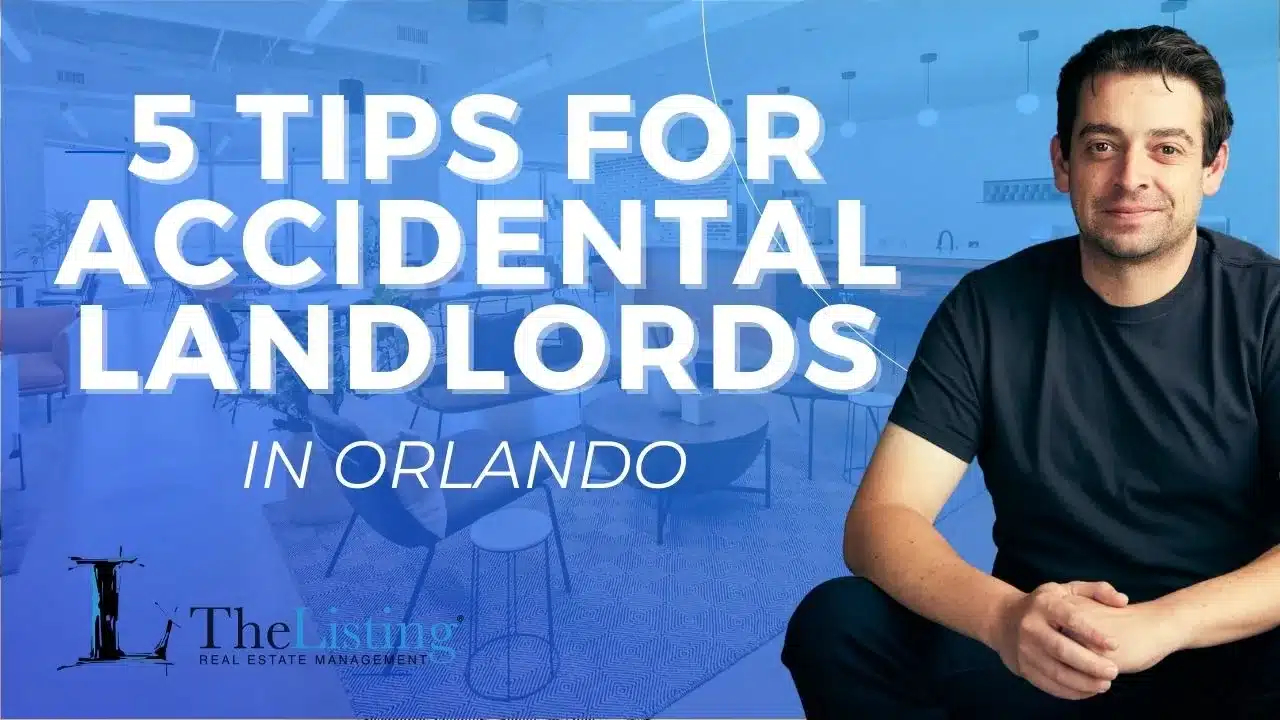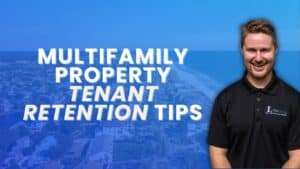Oops! You’re suddenly a landlord, and you didn’t plan for this. What do you do now? Well, rest assured, you’ve just stumbled upon an excellent opportunity. Accidental landlords are more common than you may think; many people unexpectedly find themselves in the position of a landlord for various reasons.
The term “accidental landlord” refers to a situation in which renting your house becomes more favorable than selling it, living in it, or keeping it vacant. The reasons for becoming an accidental landlord can vary from suddenly acquiring property to job relocation. The most common causes of accidental landlords are:
- Job relocation or a new job
- Financial changes
- Inheritance of property
- Familial changes
- Real estate market shifts
- Slow sales market
Benefits of Becoming an Accidental Landlord:
Although some may mistakenly feel that becoming an accidental landlord is a curse, there are many fruitful benefits to suddenly owning a rental property. The most significant benefits include:
- Earning an additional income stream.
- Property appreciation.
- Equity growth.
- Using rental income towards mortgage payments.

If you fall under the category of accidental landlord, you’re in the right place! As experienced Orlando property managers, we’re here to provide you with some guidance. Here are our top 5 tips for accidental landlords looking to optimize the financial returns of a newfound rental property.
1.) Hire an Orlando Property Management Company
Many accidental landlords have little to no experience managing rental properties and often need help figuring out where to start. Since accidental landlords are not intentional investors and did not plan on operating a rental property, we highly recommend hiring a property management company in Orlando. A property manager is an experienced professional who can assist an accidental landlord in turning their unexpected rental property into a profitable endeavor.
Some accidental landlords do not have time to manage their property or live too far away to take control of the rental process. Whatever the case, working with an Orlando property manager will allow for a stress-free and successful experience.
At The Listing Real Estate Management, we’re a full-service property management company in Orlando, Florida, specializing in managing single-family homes, townhomes, condos, and multi-family homes throughout Central Florida. Our best-in-class services include marketing and leasing, tenant screening, rent collection, maintenance and repairs, and rental property accounting. Our specialty is maximizing profits for our clients—something accidental landlords can significantly benefit from.
2.) Screening Tenants
As an accidental landlord, if you choose to manage the property independently, there can be a lot to learn. One of the most critical factors that will affect the success of your rental property is who your tenants are. This fact may seem obvious. However, some rental property owners fail to screen potential tenants thoroughly.
What makes a good tenant? Is it enough that they are nice and seem like good people? Unfortunately, no. Although some potential tenants may seem like friendly people, what really matters in this process is their rental history and financial health. Every rental property owner should have specific requirements and standards that each tenant must meet. At The Listing, our tenant screening process includes checking credit history, debt to income ratio, nationwide eviction search, background check, and income and employment verification—we suggest all rental property owners follow the same process.
Screening tenants is vital for long-term success; you don’t want just anyone living in your house. Choosing tenants with proof of successful rental history and a stable financial situation is essential to avoid the possibility of late rental payments or damage to your property.
3.) Understanding Lease Agreements and Fees
Understanding lease agreements is essential in the rental process. A lease agreement is a contract between a landlord and tenant that outlines the terms and conditions of the lease. If a tenant violates the terms, a lease agreement proves the tenant’s commitment to adhere to the terms outlined in the contract. Without this written document, there is no valid proof and no legal right to take action against the tenant.
A lease agreement should be as detailed and specific as possible. It should include all aspects of the agreement and describe the property’s condition at the lease’s start date. Describing the property’s condition allows the landlord to identify any damage caused by tenants during or at the end of the lease term.
A lease agreement should include, but not be limited to:
- Names and contact information of tenants and landlord.
- A detailed property description: Include address, unit number, and necessary specifications.
- Terms of the lease: Specify the start and end date of the lease or whether it is a month-to-month lease.
- Rent: Include the price of monthly rent, the monthly due date, the late date, and the penalty for submitting rent past the due date.
- Maintenance and repairs: Specify how maintenance and repairs will be resolved and what kind of responsibilities the tenant will have.
- Rules and regulations: Include and explain specific rules and regulations of the lease agreement, including pet policy or smoking on premises.
- Utilities and services: State which utilities and services will be included in the price of rent, which will be paid separately, and if the landlord will cover any.
- Landlord’s right to enter: Include specific details about the landlord’s right to enter the property, such as the notice period and reasons for doing so.
- Termination procedures: Specify the process of terminating the lease for any reason. Specify the procedures for early lease termination (how much the tenant will pay and how much notice should be given).
- Signatures: Be sure to receive signatures from all parties involved in the agreement.
As a landlord, it is vital to stick to the lease agreement. Do not give up your authority or stray from the lease agreement—tenants may take advantage of a landlord who does not seem to have authority. Being “flexible” or allowing tenants to bend the lease agreement rules may cause conflict and hinder the success of your rental property.
4.) Price your Property According To Market Trends
The occupancy of your property will rely heavily on the rental price. You can have the biggest house on the block, but if it’s not reasonably priced, chances are no one will rent it.
Rental prices can be hard to grasp for some rental property owners. Of course, all owners want the best price for their property, but paying attention to the rental market trends is important. From 2020 to 2022, we saw a sharp increase in Orlando rental prices; property owners could rent their homes for record-high rates. As the demand for housing has decreased, rental rates have also reduced.
The market is constantly changing, and landlords must stay in the know. Even if your property is renting for a price lower than anticipated right now, you will still be able to get more for it in the future.
In addition, we do not recommend significantly raising the rent each year. If your current tenants want to renew the lease agreement, but you raise the rent unnecessarily high, they will look elsewhere. Retaining reliable tenants plays a pivotal role in the success of your rental property. This does not mean you can’t raise the rent; however, doing so according to the market is vital.
5.) Know your Responsibilities and Landlord-Tenant Laws
Florida landlords should be familiar with specific landlord-tenant laws that must be followed. These laws are put in place to ensure landlords provide a safe and habitable environment. To avoid legal implications, landlords must do the following:
If the property is an apartment:
- Provide keys
- Ensure the availability of garbage disposal bins in the building
- Ensure safe conditions in all common area
- Comply with building, housing, and health codes
If the property is a single-family or duplex:
- Comply with building, housing, and health codes according to Florida law
In addition, tenants also have specific responsibilities to uphold. A complete list of responsibilities will depend on your individual lease agreement. Some tenant responsibilities may include, but are not limited to:
- Comply with Florida building, housing, and health codes
- Pay rent on time, according to the due date specified in the lease agreement
- Preserve the condition of fixtures, appliances, and the property overall
- Dispose of trash and waste
- Uphold all terms and conditions outlined in the lease agreement
Late fees and grace periods:
According to Florida landlord-tenant laws, there are no specific outlines regarding grace periods or late fee conditions. The landlord must provide conditions of late fees and grace periods in the rental agreement.
Should I Rent or Sell My Rental Property As an Accidental Landlord?
Accidental landlords often contemplate whether to rent or sell their newly acquired property. As experienced property managers, we highly recommend renting over selling to avoid taking a loss on your property. Renting your property will generate an unexpected income and will turn out to be highly beneficial.
At The Listing Real Estate Management, we have years of experience guiding accidental landlords to rental success. If you have little to no experience or you’re struggling to maintain your rental property, we’re here to help!
Hiring a professional property management company as an accidental landlord can significantly benefit your property and overall success. If you would like a FREE rental property price analysis, Contact us at The Listing Real Estate Management, your boutique Orlando property managers, to connect with our local expert property managers today! We’d love to be a resource for you and your rental property.






